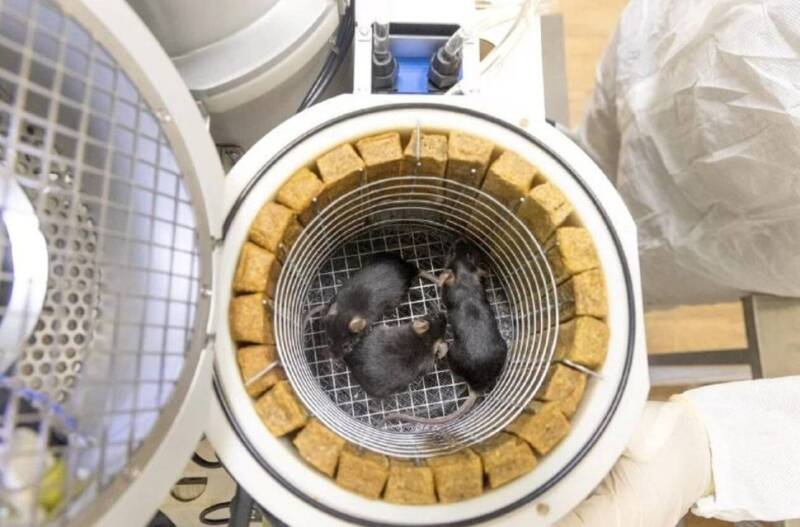Russia has revived its storied space-biology program with the launch of the Bion-M No. 2 biosatellite, carrying a miniature ecosystem of living organisms into orbit. The spacecraft lifted off today (Aug. 20) atop a Soyuz rocket from the Russia-operated Baikonur Cosmodrome in Kazakhstan at 1:13 p.m. EDT (1713 GMT; 10:13 p.m. local time).

An inside view of the Bion-M No. 2 satellite's rodent-holding unit. Ccredit: Roscosmos
Onboard are 75 mice, 1,000 fruit flies, microbes, cell cultures and plant seeds, all destined to spend a month circling Earth. Scientists will later study how microgravity and heightened radiation exposure affect the organisms, with implications for future deep-space missions.
Bion-M No. 2 is the second mission in Russia’s modern Bion-M line, which builds on decades of biosatellite research dating back to the 1970s. The original Bion program concluded in 1996 with the Bion 11 flight. Its successor, Bion-M No. 1, launched in April 2013, carrying a diverse collection of rodents, reptiles, amphibians, fish, insects and microorganisms for a 30-day mission.
Bion-M No. 2 was initially expected to launch in 2016 or 2017, but technical and programmatic delays repeatedly pushed the schedule back. Its successful liftoff today comes after nearly a decade of waiting.
Testing Biology in Space
Like its predecessor, the new biosatellite will remain in orbit for about a month before returning to Earth via parachute. But this time, it will fly in a polar orbit, exposing its passengers to significantly higher doses of cosmic radiation. Alongside the animals and microbes, researchers also packed simulated lunar soil and rock samples to examine how extraterrestrial regolith may influence biological systems.
Once recovered, the capsule will be transported to laboratories where scientists will analyze how life forms adapt to the combined stresses of microgravity and radiation — two of the greatest hazards for long-duration human spaceflight.
Russia views the Bion-M program as a stepping stone toward human exploration of deep space, particularly the Moon. The country is a partner in the International Lunar Research Station, a China-led initiative aiming to establish a crewed base on the lunar surface in the 2030s.
By studying how living organisms fare in spaceflight conditions similar to those astronauts will face, Russian scientists hope to build the biomedical foundation for future lunar expeditions.


Add comment
Comments